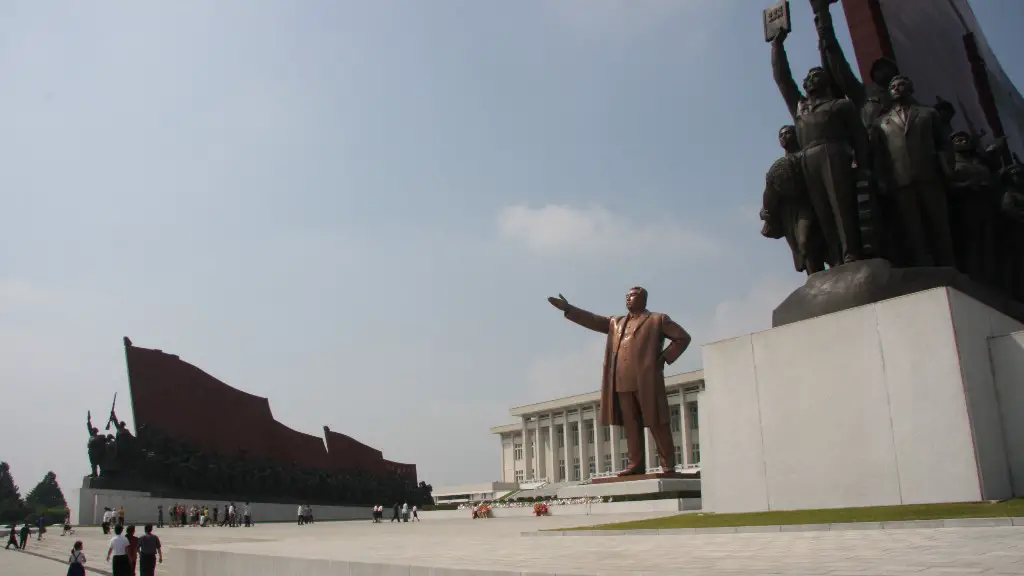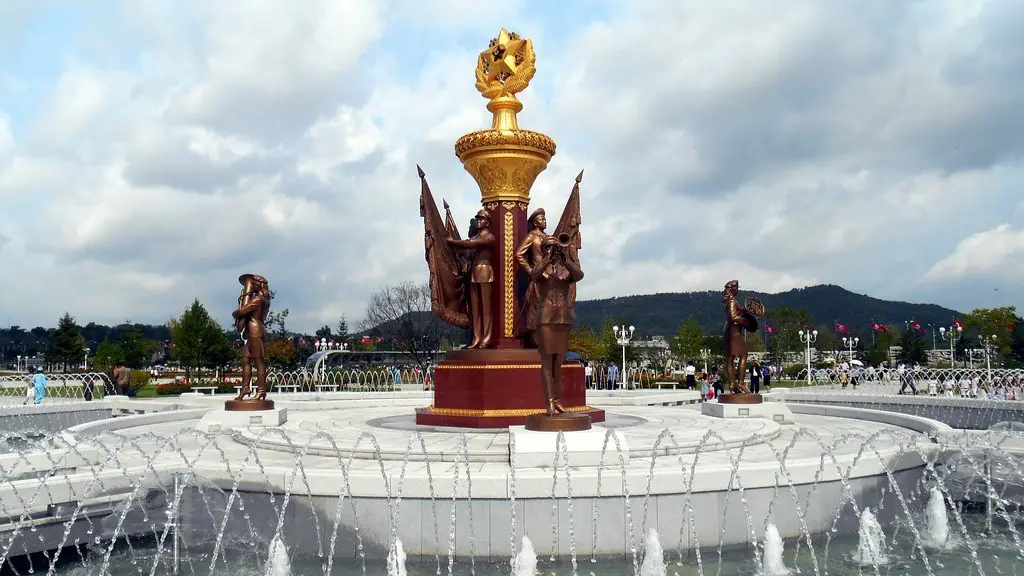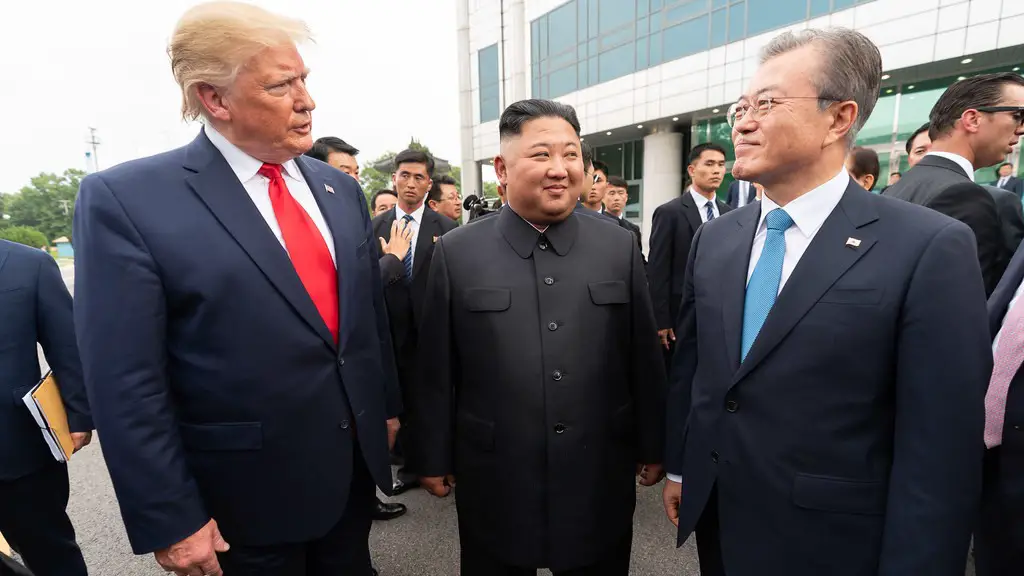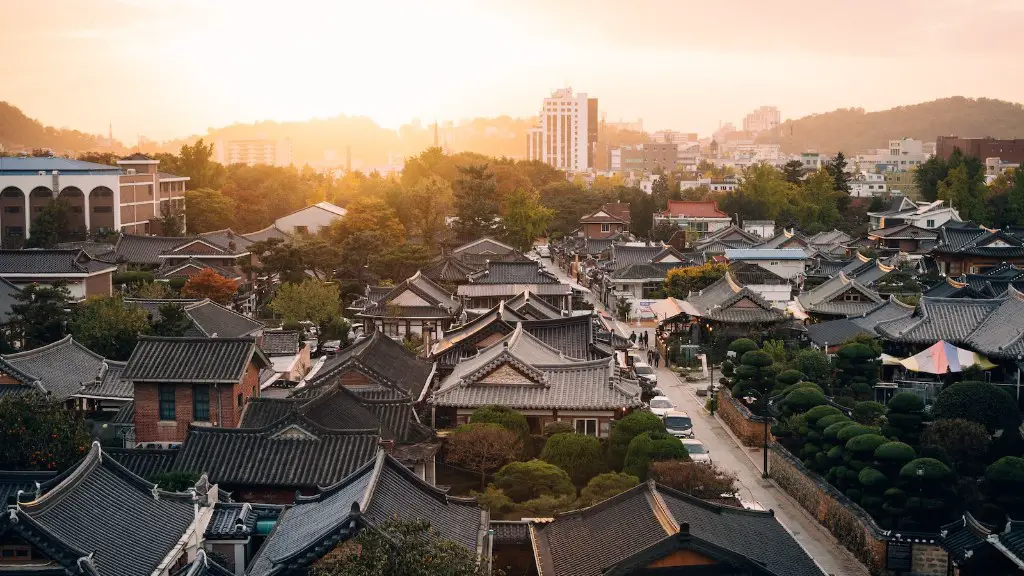Overview of North Korean Agriculture
Agriculture is a fundamental economic activity in North Korea, accounting for a large proportion of the economically active population and their produce. The North Korean government has implemented various policies to promote the development of agriculture, such as allowing farmers to retain their profits and encouraging foreign investment. Despite this, agricultural productivity in North Korea has historically been low due to poor infrastructure, inadequate technological investment and inefficiencies in various sectors. As a result, North Korea continues to experience food shortages and food insecurity, as well as persistent economic struggles. However, in recent years, there has been some improvement in the agricultural sector due to increased government investment, as well as initiatives to increase food production. This article will take a look at the current state of North Korean agriculture and explore the challenges and opportunities facing the sector.
Climate and Land Conditions
North Korea is located in the geographical region of East Asia, and its terrain is mostly mountainous. Due to its location, North Korea has a predominantly continental climate which is characterised by hot, dry summers and cold winters. The country also experiences frequent droughts and floods, which can significantly reduce agricultural yields. The land area that is suitable for agricultural use is estimated to be around 10 million hectares, of which only about one-third is actively cultivated for crop production. The remaining two-thirds comprises mountainous and other uncultivable land.
Agricultural Produce
North Korea is primarily an agricultural country, and it produces a range of crops and livestock including maize, rice, potatoes, soybeans, and livestock such as pigs, cattle, poultry and sheep. The main agricultural products are processed food products, such as noodles, bread and dairy products. Maize and other grains are the main sources of food for the North Korean people. Rice is one of the primary food staples in North Korea, with the majority of the country’s production being consumed domestically.
Government Policy
The North Korean government has implemented a number of policies and initiatives to promote agricultural productivity and food security. This includes providing subsidies to farmers, setting up cooperatives, and issuing incentives to increase agricultural production. The government has also taken steps to improve the infrastructure in the agricultural sector, investing in irrigation and water resources development, as well as agricultural research and development. In addition, the government has implemented various land reforms, such as privatising land and allowing farmers to sell their produce in the market.
Economic Challenges
Despite the efforts of the North Korean government to improve the agricultural sector, the country still faces significant economic challenges. Firstly, the agricultural sector is highly dependent on foreign aid and investment, which has been declining in recent years due to increased international sanctions. Secondly, North Korea has limited access to modern farm machinery and technologies, and the dominant methods of farming are outdated, contributing to low yields. Finally, agricultural production is hampered by the lack of access to essential resources such as fertilisers and pesticides.
Opportunities for Improvement
Despite the various economic challenges, there are various initiatives and opportunities which could help to improve North Korean agriculture. Firstly, the introduction of modern farming techniques and technologies could help to increase yields and reduce production costs. Additionally, increased cooperation between farming households and cooperative farmers’ associations could help to improve crop production and management. Secondly, improved infrastructure, such as improved roads and railways, could help to reduce transport costs and increase access to markets. Finally, foreign aid and investment could also be used to support the agricultural sector.
Organic Agriculture
Organic agriculture has become an increasingly popular option in North Korea as a way to reduce the use of chemical fertilisers and pesticides, reduce costs and increase yields. North Korea has set up organic farming cooperatives and is implementing initiatives to promote organic agriculture, such as providing technical and financial support for farmers and developing organic certification programmes. Organic agriculture is seen as one of the most promising opportunities for North Korea to improve its agricultural productivity and reduce its reliance on imported agricultural inputs.
Agricultural Trade
Agricultural trade has traditionally been an important part of North Korea’s economy, accounting for a significant share of the country’s total exports. North Korea predominantly exports agricultural produce such as maize, seafood, and bulk grains. However, due to the economic sanctions imposed by the international community, the country has seen a significant decline in agricultural exports in recent years. Despite this, North Korea is still able to access a limited amount of international aid and investment, which can help to support the agricultural sector.
Role of Foreign Investment
Foreign investment has the potential to be an important factor in the development of North Korean agriculture. Investment by foreign companies can help to improve productivity, develop new technologies, and provide access to international markets. Foreign companies can also provide access to capital, which can help to upgrade infrastructure and provide technical expertise to farmers. However, due to the economic sanctions imposed on North Korea, foreign investment has been limited. Despite this, various international organisations and governments have provided limited financial and technical assistance to the agricultural sector in North Korea.
Technological Incentives
The North Korean government has taken steps to invest in technological solutions to help improve agricultural productivity. This includes developing agricultural robots and investing in the use of satellite imagery. The government has also encouraged the use of family-run monitoring systems, which can provide farmers with real-time information on weather and market conditions. In addition, the government has invested in the use of information technology, developing smartphones and providing North Koreans with access to the internet.
Government Initiatives
The North Korean government has implemented various initiatives to promote the agricultural sector, such as providing subsidies, setting up cooperatives and issuing incentives to increase agricultural production. Additionally, the government has developed agricultural policies to protect the environment, such as reducing the use of chemicals, increasing soil fertility and promoting water conservation. Finally, the government has set up the National Fund for Modernisation of Agriculture and Rural Development, which provides financial and technical assistance to farmers to help them improve their productivity.
Education and Training
In order to improve the agricultural sector and increase productivity, the North Korean government is investing in educational and training programmes. This includes providing technical qualifications and skills training to farmers and professionals, as well as programmes to promote agricultural research and development. Additionally, the government has set up various government-run institutes and universities dedicated to agriculture. By investing in education and training, the government is aiming to create the necessary conditions for the agricultural sector to thrive in the long term.



